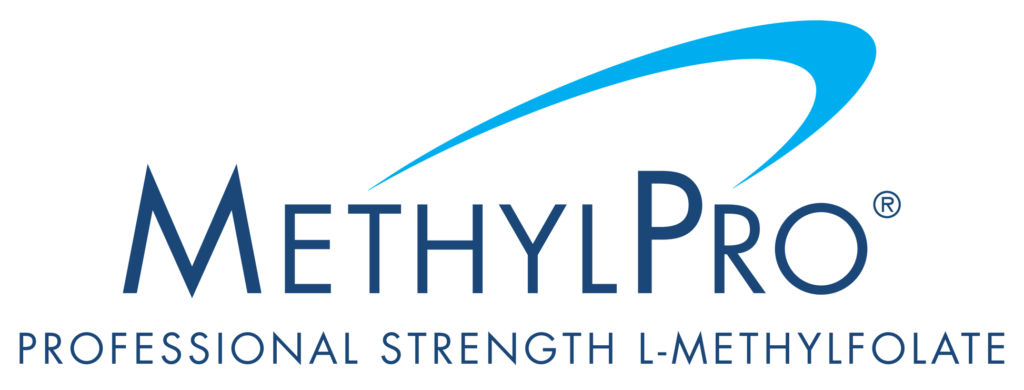“Homocysteine balance” is not a widespread topic of conversation in the wellness world, but it is an important one, as homocysteine and MTHFR can be tightly linked. If you have an MTHFR gene mutation, you may have heard about homocysteine and its potential impact on your health.
But what exactly is homocysteine, and why does it matter for those with MTHFR mutations? Understanding the relationship between your genetics and homocysteine processing can help you take proactive steps toward better health. One such step may be supplementing with L-methylfolate to support homocysteine balance.
What Is Homocysteine?
Homocysteine is an amino acid produced as a byproduct of methionine metabolism, a process essential for building proteins and other critical functions in the body. Under normal circumstances, homocysteine is efficiently processed and converted into beneficial compounds like glutathione (the master antioxidant) and SAMe (S-adenosyl-L-methionine), which support detoxification and neurotransmitter production [1]. The figure below shows where homocysteine plays a role in normal, healthy folate and methionine cycles.
However, when homocysteine levels become too high, (often due to low levels of L-methylfolate and/or B12) it can contribute to health challenges [1,2]. Healthy homocysteine levels are necessary to protect cardiovascular health, balanced inflammation, and proper neurological function [2].
The Role of MTHFR in Homocysteine Processing
The MTHFR (methylenetetrahydrofolate reductase) gene encodes an enzyme that plays a critical role in converting folate (vitamin B9) into its active form, L-methylfolate (as illustrated in the figure above). This active folate is essential for the methylation process, which helps convert homocysteine into methionine, keeping homocysteine levels in check.
People with MTHFR mutations (the most common being C677T or A1298C variants) often have reduced MTHFR enzyme function, leading to inefficient folate metabolism and, consequently, higher homocysteine levels [3]. Studies have shown that individuals with the MTHFR C677T mutation may have up to a 70% reduction in enzyme activity if they inherit two copies (homozygous) and a 30–40% reduction if they inherit one copy (heterozygous) [4].
Why Balanced Homocysteine Levels Matter
Maintaining optimal homocysteine levels is essential for overall health. Balanced homocysteine has been linked to:
- Cardiovascular Health: Homocysteine levels are associated with the health of arteries, blood clotting processes, and blood pressure [5,6].
- Neurological Health: Research has connected homocysteine with cognitive function, mood, and nerve health [7].
- Healthy Pregnancy: As homocysteine/methionine balance is linked to multiple systems including nerve and brain health and heart and blood vessel health, there are multiple pathways by which it plays into the health of both mother and baby during pregnancy [8],[9].
For individuals with an MTHFR mutation, actively managing homocysteine levels is crucial for reducing these risks.
How L-Methylfolate Can Help
Since standard folic acid must be converted into L-methylfolate before it can be used by the body, individuals with MTHFR mutations often struggle to process folic acid efficiently. This is why supplementing with L-methylfolate directly is the best way to support homocysteine metabolism.
Benefits of L-Methylfolate Supplementation:
- Supports Homocysteine Conversion: L-methylfolate aids in the methylation process, converting homocysteine into methionine and reducing overall homocysteine levels [10].
- Supports Cardiovascular Health: By keeping homocysteine in balance, L-methylfolate supports heart and blood vessel health [10].
- Enhances Neurological Function: Adequate folate levels support normal production of neurotransmitters involved in mood regulation, cognitive function, and mental clarity [11].
- Aids Pregnancy Health: Supports proper methylation during fetal development for both mother and baby [8,9].
Conclusion: Take Control of Your Health with L-Methylfolate
If you have an MTHFR mutation, maintaining balanced homocysteine levels is essential for your cardiovascular, neurological, and overall well-being. Supplementing with L-methylfolate provides the most bioavailable form of folate, ensuring your body can effectively process homocysteine and support methylation pathways. By understanding how your genes influence homocysteine metabolism, you can make informed choices to optimize your health and well-being.
Speak with your healthcare provider about testing your homocysteine levels and whether L-methylfolate supplementation is right for you. Taking proactive steps today can lead to better health outcomes in the future.
References
- https://link.springer.com/article/10.1007/s12640-021-00359-5
- https://cdnsciencepub.com/doi/abs/10.1139/cjpp-2018-0112
- https://www.cell.com/heliyon/fulltext/S2405-8440(23)03651-4?uuid=uuid%3Aabd07d62-17d1-4e0d-a3aa-7c11cc68623a
- https://acrjournals.onlinelibrary.wiley.com/doi/full/10.1002/acr2.11667
- https://academic.oup.com/eurjpc/article/31/9/1092/7571316
- https://www.mdpi.com/2218-1989/11/6/354
- https://www.frontiersin.org/journals/aging-neuroscience/articles/10.3389/fnagi.2024.1434943/full
- https://onlinelibrary.wiley.com/doi/full/10.1155/2021/6652231
- https://www.frontiersin.org/journals/cell-and-developmental-biology/articles/10.3389/fcell.2022.802285/full
- https://pmc.ncbi.nlm.nih.gov/articles/PMC9832224/
- https://www.mdpi.com/2072-6643/15/17/3859

